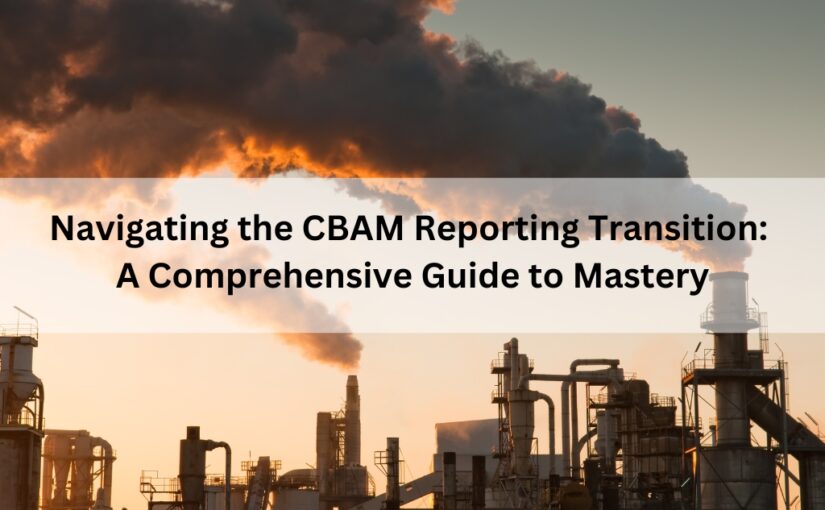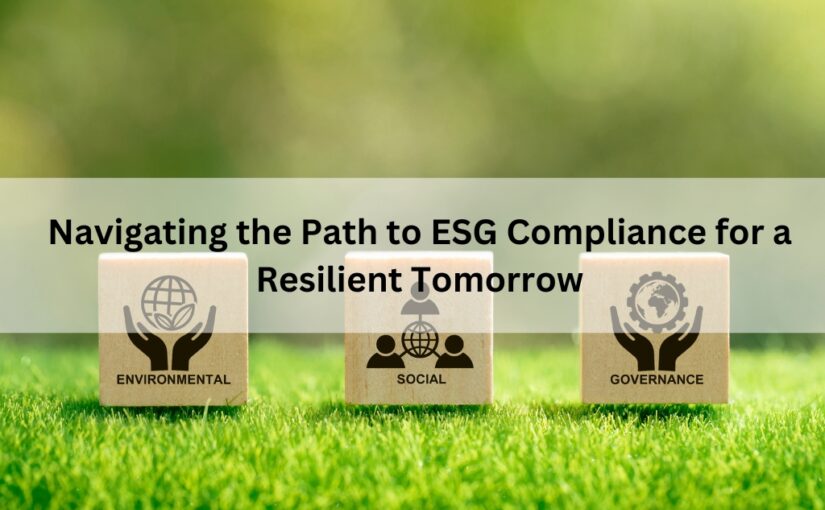Navigating the Path to ESG Compliance for a Resilient Tomorrow
In an age defined by growing environmental, social, and governance (ESG) concerns, companies are under increasing pressure to act as responsible corporate citizens. ESG compliance has shifted from being a mere concept to becoming a critical element of business strategy. This blog delves into the significance of ESG compliance, its core components, and offers guidance to companies on navigating this intricate landscape to foster a sustainable future.

The Three Pillars of ESG:
Navigating ESG Compliance Challenges and Solutions:
Managing ESG compliance can pose challenges. Here are three common obstacles that companies may encounter:
1. Multiple ESG Frameworks and Standards: ESG corporate compliance often involves navigating a plethora of ESG frameworks and standards, making it challenging to choose the most suitable
Solution: To streamline the selection process, companies should identify the specific environmental, social, or governance issues that are relevant within their organization. Whether it’s prioritizing staff diversity or reducing carbon emissions, focusing on frameworks and standards aligned with these issues is essential. Additionally, regional considerations should be considered.
2. Defining ESG Goals and Principles: Setting clear ESG goals within a company’s overall strategy can be a stumbling block for many organizations, as they might lack a clear understanding of how to achieve these goals.
Solution: For effective ESG compliance, it is advisable to enlist the expertise of ESG specialists who can help set ESG goals and guide the company toward meeting ESG requirements.
3. Managing ESG Data and Metrics Over Time: Beyond defining ESG goals and selecting frameworks, measuring progress, and collecting ESG data are equally critical aspects of compliance.
Solution: Utilizing board portals is an effective approach. Board meeting management software enables secure storage of extensive data, allowing stakeholders to access and evaluate it. Moreover, conducting meetings within the software streamlines ESG compliance management.
Benefits/Effects/Impacts:
Benefits:
Improved Reputation: Enhances a company’s reputation and brand image.
Risk Mitigation: Reduces financial and operational risks.
Long-term Sustainability: Ensures business resilience and longevity.
Effects:
Ethical Alignment: Aligns business practices with societal and environmental values.
Innovation: Drives innovation in sustainable products and processes.
Impacts:
Environmental: Reduces carbon footprint and conserves resources.
Social: Enhances diversity, labor practices, and community well-being.
Governance: Strengthens ethical leadership and transparency.
Conclusion:
ESG compliance signifies a pivotal shift in the way businesses operate and are assessed in today’s world. Compliance solutions for ESG play a crucial role in simplifying and enhancing a company’s ESG efforts. They facilitate navigation of the intricate ESG landscape, enabling businesses to meet their commitments efficiently and improve their ESG performance. For further insights into ESG practices,please visit Enventure ESG compliance is not just about meeting regulatory requirements; it’s about embracing a new paradigm that prioritizes environmental stewardship, social responsibility, and sound governance.

The Three Pillars of ESG:
- Environmental (E): The environmental pillar centers on a company’s impact on the planet. This encompasses the company’s carbon footprint, efforts to address climate change, responsible chemical usage in manufacturing, and sustainable practices within its business and supply chains.
- Social (S): Social factors revolve around a company’s relationships with its employees, customers, communities, suppliers, and other stakeholders. This includes labor practices, diversity and inclusion, human rights, and community engagement.
- Governance (G): Governance factors scrutinize a company’s structure, leadership, and decision-making processes. This includes board diversity, executive compensation, transparency, and anti-corruption measures.
Navigating ESG Compliance Challenges and Solutions:
Managing ESG compliance can pose challenges. Here are three common obstacles that companies may encounter:
1. Multiple ESG Frameworks and Standards: ESG corporate compliance often involves navigating a plethora of ESG frameworks and standards, making it challenging to choose the most suitable
Solution: To streamline the selection process, companies should identify the specific environmental, social, or governance issues that are relevant within their organization. Whether it’s prioritizing staff diversity or reducing carbon emissions, focusing on frameworks and standards aligned with these issues is essential. Additionally, regional considerations should be considered.
2. Defining ESG Goals and Principles: Setting clear ESG goals within a company’s overall strategy can be a stumbling block for many organizations, as they might lack a clear understanding of how to achieve these goals.
Solution: For effective ESG compliance, it is advisable to enlist the expertise of ESG specialists who can help set ESG goals and guide the company toward meeting ESG requirements.
3. Managing ESG Data and Metrics Over Time: Beyond defining ESG goals and selecting frameworks, measuring progress, and collecting ESG data are equally critical aspects of compliance.
Solution: Utilizing board portals is an effective approach. Board meeting management software enables secure storage of extensive data, allowing stakeholders to access and evaluate it. Moreover, conducting meetings within the software streamlines ESG compliance management.
Benefits/Effects/Impacts:
Benefits:
Effects:
Impacts:
Conclusion:
ESG compliance signifies a pivotal shift in the way businesses operate and are assessed in today’s world. Compliance solutions for ESG play a crucial role in simplifying and enhancing a company’s ESG efforts. They facilitate navigation of the intricate ESG landscape, enabling businesses to meet their commitments efficiently and improve their ESG performance. For further insights into ESG practices,please visit Enventure ESG compliance is not just about meeting regulatory requirements; it’s about embracing a new paradigm that prioritizes environmental stewardship, social responsibility, and sound governance.










